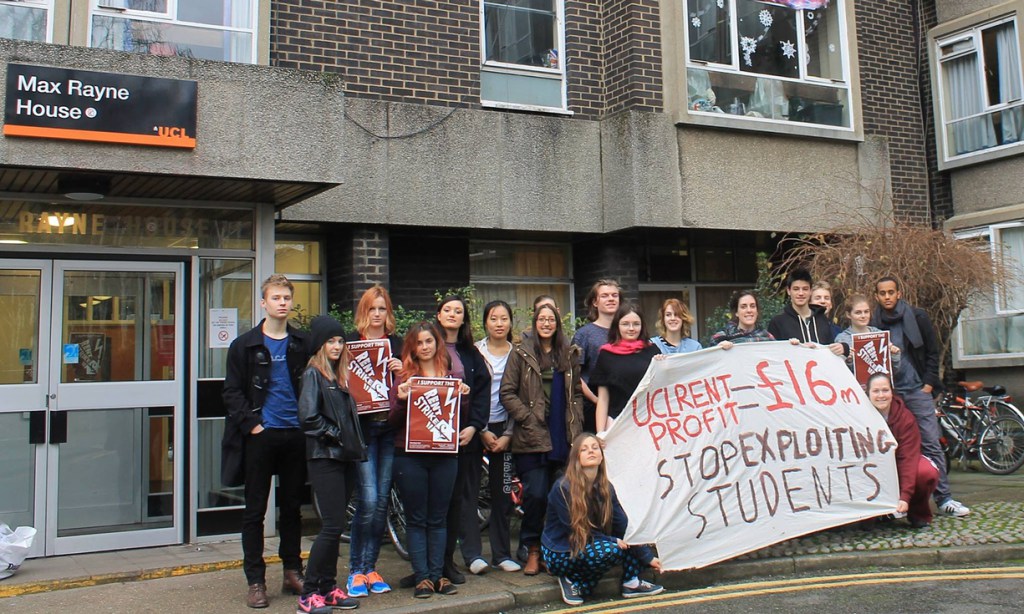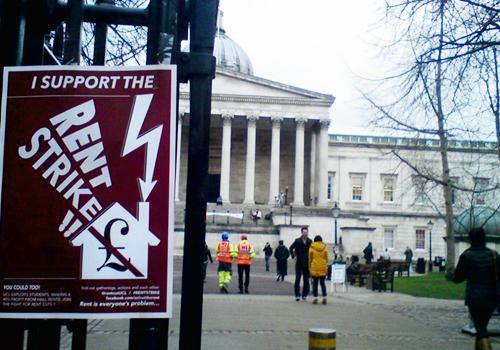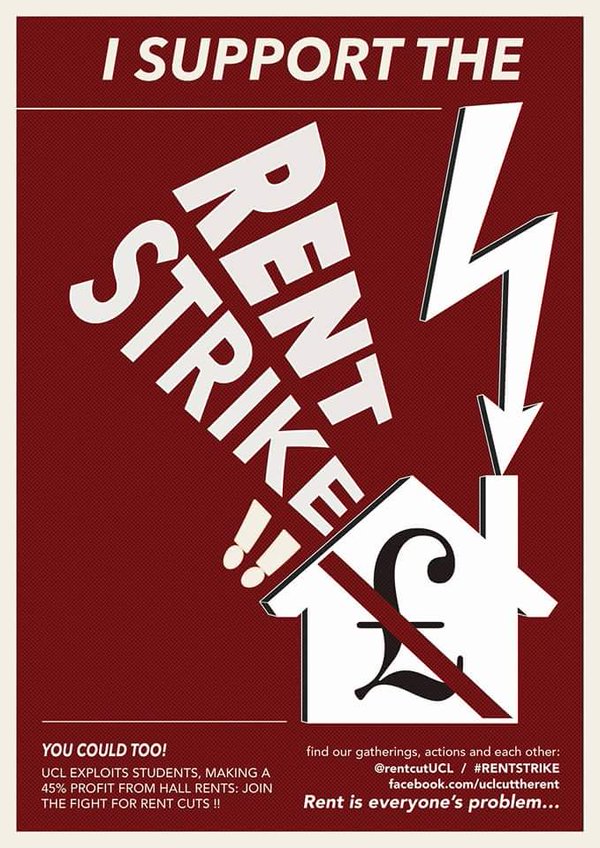Beth Perkin discusses why UCL management has been beaten and can be beaten again
If you’ve checked Facebook at all in the last 72 hours, chances are you’ve already heard about the UCL students who’ve won£100,000 in compensation because of the dire state of their halls.
The Campbell House win is unprecedented in its success. After a seven month campaign, centred around the infamous rent strike, over ‘unbearable’ living conditions, including noise and dust pollution and rodent infestation, a UCL complaints panel unanimously ruled that there had been ‘serious failings’ from management to solve the ‘unacceptable’ situation in Campbell House halls. The hearing culminated in each tenant being given a full term’s rent rebate of £1368.
Everyone from the Guardian to the Independent to the Huffington Post have jumped to cover what is indisputably a monumental victory for the 87 residents and UCL Cut the Rent who led the strike. On Wednesday, the BBC is even coming to campus to cover the story and film the Cut the Rent meeting for a segment on the news, something that very rarely happens with student stories.
Having canvassed halls myself on behalf of the campaign, one of the most common (and valid) questions levelled at me by sceptical students is why they should even consider participating in a rent strike if there is no evidence or assurance it would work. What the Campbell House victory shows us is that it does.
The general feeling amongst students here at UCL is that protesting ultimately achieves nothing. The university’s hefty pay out shows that this simply isn’t true – highlighting the importance and validity of disruptive protests in order to hold university management to account. What has, up until this point, been seen as the reserve method of campus activist groups now has the ability to be implemented on a mass scale by a wide variety of students across the university.
 Photo: Londonstudent.coop
Photo: Londonstudent.coop
The rather depressing fact of the matter is that the priorities of UCL management don’t lie with the welfare of the student body but with the monetisation of the estate. Students have tried to appeal to their humanity through petitions and presenting them with thousands of students’ signatures urging them to lower rent costs. But it doesn’t work. The only language management seems to understand is the language of money. To really bring about change at UCL students have to hit them where it hurts – their wallets.
The implications of the Campbell House win are huge. Not only does it set a precedent for the ruling at the upcoming hearing for the tenants of Hawkridge House, but on a wider scale shows the potential for an increasing number of students to take an effective stand against their university. In light of this success, UCL Cut the Rent hopes to further grow its campaign for cheaper rents, mobilising students in halls across the university to organise successful rent strikes of their own.
What’s happening here at UCL (and at SOAS where students also won a rent strike rebate earlier this year) shows that autonomous grassroots campaigns like Cut the Rent have the power to affect big change. Its success has the potential to be replicated not only by other students in halls across the university but by academic institutions across the UK. The Cut the Rent campaign has the potential to become both a catalyst and model for other rent strikes all over the country.
Michael Arthur, watch this space.


